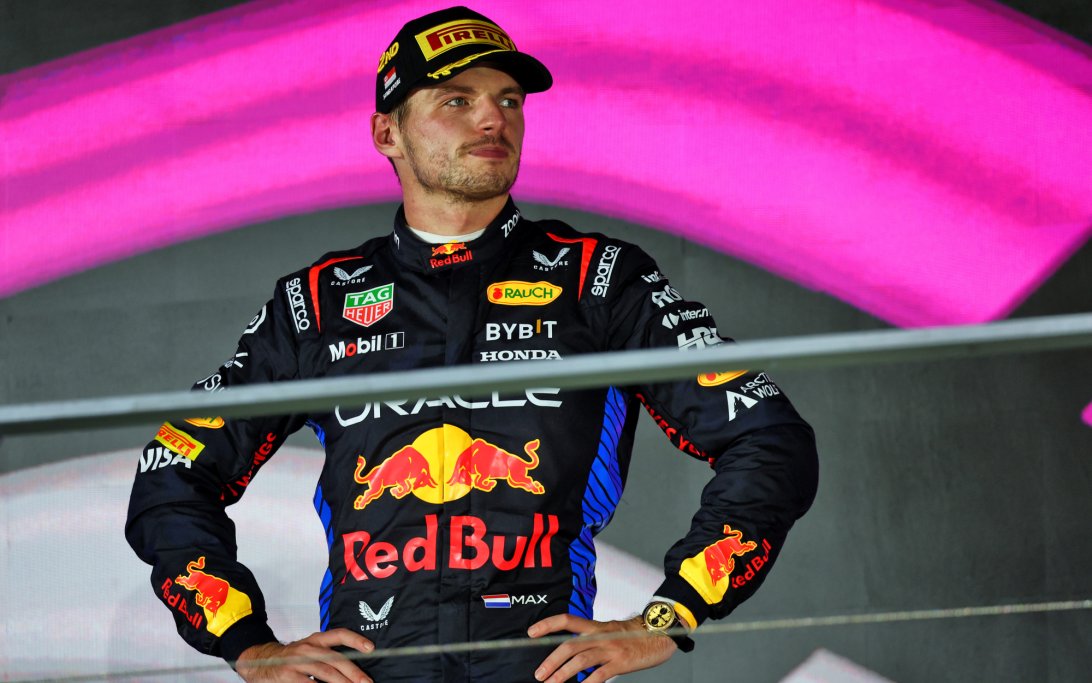
In a striking critique that has sent shockwaves through the motorsport community, reigning Formula 1 world champion Max Verstappen has lambasted the Las Vegas Grand Prix, calling it a “99% show and 1% sporting event.” His comments come amid a backdrop of glitz and glamour that has characterised F1’s first return to Las Vegas in over four decades. Verstappen’s scathing remarks not only highlight his disdain for the extravagant spectacle but also underscore a growing tension between the sport’s traditional values and its recent pivot towards entertainment-driven spectacles.
The Glitz of Las Vegas: A Double-Edged Sword
The Las Vegas Grand Prix held on a purpose-built circuit that winds through the iconic Strip, was designed to be a dazzling showcase for Formula 1. With neon lights, celebrity appearances, and high-profile parties, the event aimed to attract a new audience while capitalising on the city’s reputation for extravagance. However, for Verstappen, this focus on spectacle detracts from the essence of racing.
During a press conference leading up to the race, Verstappen expressed his frustration with the event’s emphasis on entertainment over competition. “I felt like a clown standing on stage during the opening ceremony,” he remarked, referring to the multiple musical acts and extravagant presentations that preceded the race. His comments reflect a broader sentiment among traditionalists who fear that Formula 1 is losing its identity amidst a push for greater commercialisation.
A Snub to F1 Leadership
Adding fuel to the fire, Verstappen also snubbed an invitation from F1 CEO Stefano Domenicali to attend a VIP party at The Wynn Hotel, further emphasising his discontent with the event’s direction. This refusal has raised eyebrows within the paddock and among fans who view it as a significant statement from one of the sport’s biggest stars.
“I’m here to race, not to party,” Verstappen stated bluntly when asked about his absence from the VIP gathering. His decision not only highlights his priorities but also serves as a critique of what he perceives as an increasingly superficial approach to Formula 1.
The Impact of Entertainment Culture
Verstappen’s remarks have ignited discussions about the balance between entertainment and sporting integrity in Formula 1. While many fans appreciate the excitement and glamour that events like the Las Vegas Grand Prix bring, others worry that this shift could compromise the competitive spirit that has defined F1 for decades.
The influx of celebrity culture into motorsport is not new; however, it has reached unprecedented levels in recent years. The Netflix series “Drive to Survive” has played a significant role in popularising Formula 1 among younger audiences, but it has also contributed to an environment where drama often takes precedence over racing.
Critics argue that this focus on entertainment can dilute the sport’s competitive nature. As teams invest more in marketing and promotional activities, questions arise about whether they are losing sight of what truly matters: performance on the track.
Verstappen’s Pursuit of Authenticity
For Verstappen, authenticity is paramount. He has consistently emphasised his desire for genuine racing experiences rather than gimmicks designed to attract attention. “I want to compete against the best drivers in the world,” he stated during an interview. “I don’t want my achievements measured by how many parties I attend or how flashy an event is.”
His commitment to authenticity resonates with many fans who appreciate his straightforward approach. In an era where some drivers have embraced celebrity status, Verstappen remains focused on honing his skills and delivering exceptional performances on race day.
The Reaction from Fans and Analysts
Verstappen’s comments have elicited mixed reactions from fans and analysts alike. Supporters applaud his candidness and agree with his assessment of the Las Vegas Grand Prix as lacking substance. Many feel that Formula 1 should prioritise racing over entertainment and remain true to its roots.
Conversely, some critics argue that Verstappen’s perspective is elitist and dismissive of efforts to broaden F1’s appeal. They contend that attracting new fans through events like Las Vegas is essential for the sport’s growth and sustainability.
This divide reflects a broader tension within motorsport as it grapples with its identity in an ever-changing landscape. As F1 continues to evolve, finding common ground between tradition and modernity will be crucial for its long-term success.
The Future of Formula 1: Balancing Act
As Formula 1 moves forward, it faces critical decisions about its future direction. The Las Vegas Grand Prix serves as both an opportunity and a challenge—a chance to engage new audiences while risking the alienation of long-time fans who cherish the sport’s competitive integrity.
Verstappen’s critique underscores the importance of maintaining a balance between spectacle and sport. While entertainment can enhance the overall experience, it should not overshadow what makes Formula 1 unique: fierce competition among elite drivers and teams striving for excellence.
In response to Verstappen’s comments, F1 leadership must consider how best to navigate this complex landscape. Engaging with drivers like Verstappen—who represent both talent and authenticity—will be vital in shaping policies that resonate with fans while preserving the essence of racing.
A Call for Reflection
Max Verstappen’s scathing verdict on the Las Vegas Grand Prix has sparked important conversations about Formula 1’s identity in an era dominated by entertainment culture. His refusal to participate in lavish events reflects a desire for authenticity that resonates with many fans who long for genuine competition.
As F1 continues its journey into uncharted territory—balancing glitz with grit—it must remain vigilant about preserving its core values while embracing growth opportunities. The future of Formula 1 depends not only on attracting new audiences but also on honouring its rich history as one of motorsport’s most prestigious championships.
In summary, while events like the Las Vegas Grand Prix may bring excitement and glamour, true success lies in delivering thrilling races that capture hearts around the world. As drivers like Verstappen advocate for authenticity amidst evolving landscapes, Formula 1 stands at a crossroads where choices made today will shape its legacy tomorrow.
Leave a Reply